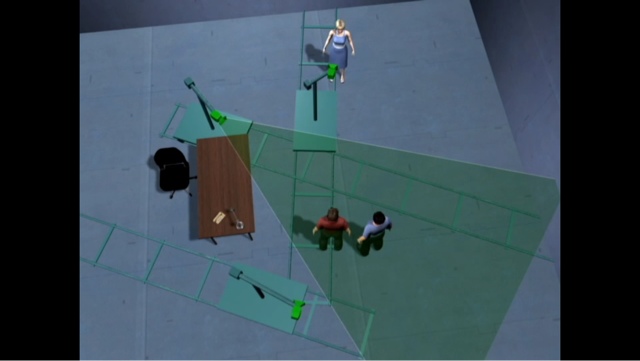Wednesday, November 13, 2013
Running a film school
Yes, I know, there has been nothing but silence here for a while again…
The reason now is that I am running a film school…
We are now in the seventh week and it has been a great school. We have five students, from Colombia, Mexico and Venezuela. They are all ambitious and serious about the school, which is a blessing.
This is the third film school we are running in Medellin and we are improving it every time.
Sunday, July 14, 2013
Alerts and their absence
For "paisas", saving your face is very important. This can be very frustrating for (Western) foreigners. If a paisa has committed to show up on a specific time and gets hindered, the person won't call you to alert you that they can't come. The shame is unbearable. Instead, they will make themselves unreachable until the event or meeting has passed by completely. One way for the foreigner to handle this, is to call the person the same day as the meeting to confirm that they reallly can make it. This way valuable hours and frustration - and faces - can be saved.
Tuesday, June 18, 2013
God is bigger
Tonight I had the honor to talk to an adopted 5-year old girl coming from a rather difficult background, from a violent neighborhood and a mother with far-too early pregnancy. But flowers grow in asphalt. I was stunned by this girl's joy, intelligence and humor. I told her I was the biggest person in the world (I am almost two meters tall). She immediately whispered, "No, God is bigger". So true, little friend.
Monday, June 17, 2013
Constructing apple boxes for film
| 15 mm plywood |
Today we started our 10-day "Christian" course in communications, with optional emphasis in video production, photography, graphic design, artistic makeup, comics, music and acting.
Thursday, June 13, 2013
Grown-ups living with their parents
It is interesting how in Colombia adult people still live with their parents. Pretty much all singles live with their parents as long as they aren't married. It doesn't matter if you are forty or fifty years. So if you meet this loud, confident middle-aged leader type in a party, and he's not married, you can be sure later in the evening he will go home to his mommy. I'm still getting used to the thought.
Or like my neighbors. Every now and then I discover a new person coming out from their door, realizing they too live there. Plus the mandatory dog of course. I think it's wonderful (except the dog). For economic or traditional reasons, Colombians value the family. And people don't have to suffer from loneliness.
Note: Sorry for the formatting of the last posts. I posted from my cell phone.
Wednesday, June 12, 2013
Film blocking workshop
"Blocking" is one of my favorite subjects in filmmaking. Well, one of many. Blocking refers to the scheme of movements for the actors and the camera in a scene. Tonight I held a seminar on this for our team, and showed a compilation that I had made, of movie scenes with examples of good blocking and "compositions in movement". Hitchcock was good at this, so I used several examples from his films. Then I let the participants stage small scenes and film them to practice their knowledge.
The picture above is from "Hollywood Camera Work", an excellent resource on (film) blocking and staging.
Tuesday, June 11, 2013
The use of academic language
During the previous national dance seminar I noticed how the university lecturers used an extremely abstract Spanish, and as a result their rethoric and vocabulary were completely different from the other lecturers who were not university professors.
I've also noticed that when Colombian university students write texts, for example for journalism as part of our work, they use a very dry, overly abstract and complicated language. When I have told them it defeats the purpose (to communicate clearly) they have told me that in the universities they are tought to use that kind of language. I told them that if you know something well, it shows anyway, you shouldn't try to use a complicated languaje just for the sake if it, or you end up boring the audience or the reader.
I reflected over this; why we in our highly educated Sweden do not admire a person who speaks in bureaucratic or overly complicated terms, people even tend to ridicule such behavior. I guess that part of the reason are our socialistic anti-authority values that mock all kinds of "bourgeoisie" or intents to show a higher class.
The scholars at the dance seminar didn't seem to be afraid of losing their audience's attention by using an overly academic and abstract language, not even talking to their "very physical" audience: dancers. This leads me to an upcoming topic: shame.
Subscribe to:
Posts (Atom)


